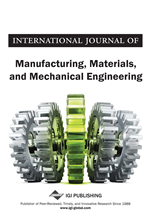Search
Understanding genetic factors that contribute to cannabis use disorder (CUD) is important, but to date, findings have been equivocal. Single-nucleotide polymorphisms (SNPs) in the cannabinoid receptor 1 gene (CNR1; rs1049353...
Understanding genetic factors that contribute to cannabis use disorder (CUD) is important, but to date, findings have been equivocal. Single-nucleotide polymorphisms (SNPs) in the cannabinoid receptor 1 gene (CNR1; rs1049353...
Background: Two major constituents of cannabis are Δ 9 -tetrahydrocannabinol (THC) and cannabidiol (CBD). THC is the main psychoactive component; CBD may buffer the user against the harmful effects of THC. Aims...
Background: Cannabidiol has potential therapeutic benefits for people with psychiatric disorders characterised by reward function impairment. There is existing evidence that cannabidiol may influence some aspects of reward...
Background: Two major constituents of cannabis are Δ 9 -tetrahydrocannabinol (THC) and cannabidiol (CBD). THC is the main psychoactive component; CBD may buffer the user against the harmful effects of THC. Aims...
Background: Cannabidiol has potential therapeutic benefits for people with psychiatric disorders characterised by reward function impairment. There is existing evidence that cannabidiol may influence some aspects of reward...
Background: Cannabis and its main psychoactive component, Δ9-tetrahydrocannabinol (THC), can elicit transient psychotic symptoms. A key candidate biological mechanism of how THC induces psychotic symptoms is the...
Results from Blind Test Series 1, part of the Collaborative Computational Project in Wave Structure Interaction (CCP-WSI), are presented. Participants, with a range of numerical methods, simulate blindly the interaction...
Background: Cannabis and its main psychoactive component, Δ9-tetrahydrocannabinol (THC), can elicit transient psychotic symptoms. A key candidate biological mechanism of how THC induces psychotic symptoms is the...
Results from Blind Test Series 1, part of the Collaborative Computational Project in Wave Structure Interaction (CCP-WSI), are presented. Participants, with a range of numerical methods, simulate blindly the interaction...

